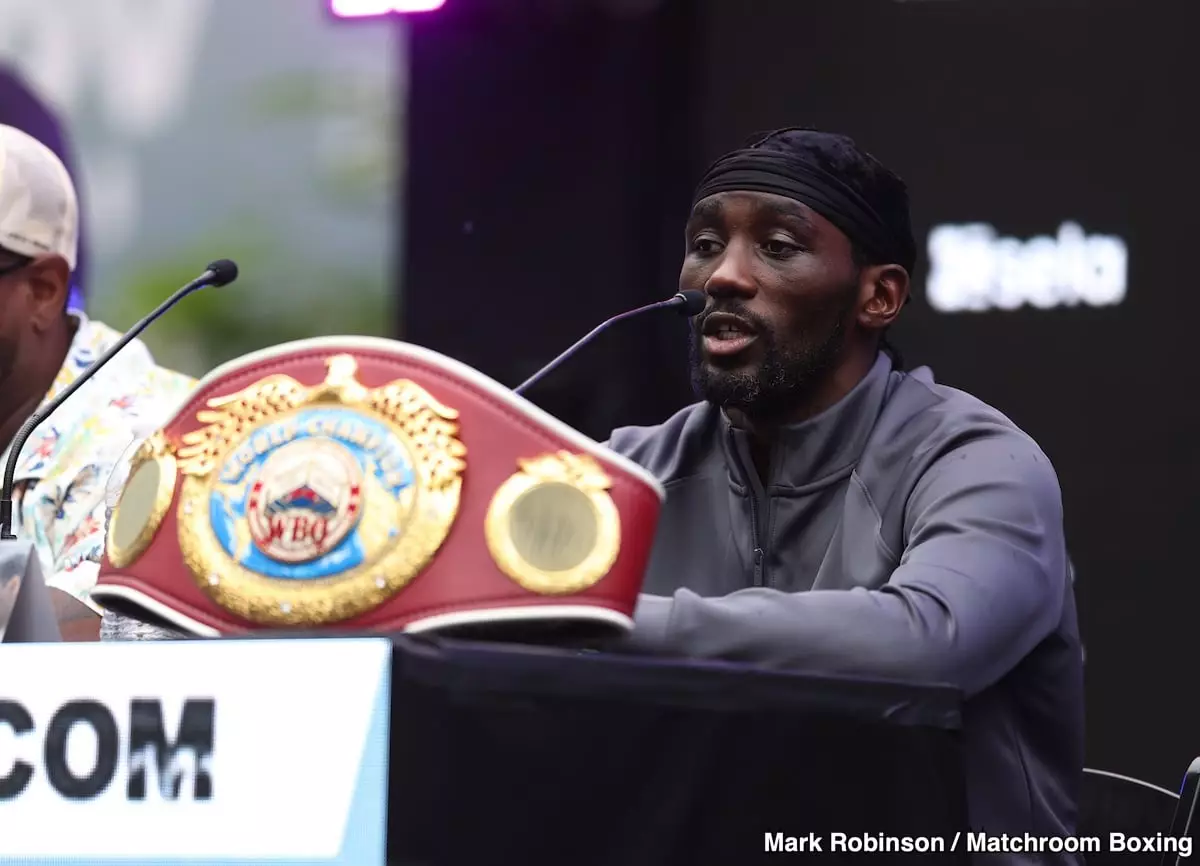In the world of boxing, where legacies are etched in the ring’s brutality and the caliber of opposition faced, a recent clash of words between Terence Crawford and Canelo Alvarez has ignited a debate over the former’s career stature. Canelo’s assertion that Crawford has only defeated one notable opponent has not only angered Crawford but also raised essential questions about his career choices and the quality of his opponents over the years.
Canelo Alvarez, a name synonymous with boxing excellence, took to media outlets to provide a blunt assessment of Crawford’s résumé, stating that he has only “beat one good fighter.” This statement, aimed squarely at Crawford’s recent victory over Errol Spence, has drawn the ire of the undefeated champion. While Crawford argues that he has made many competent fighters look ordinary, there is a significant weight to Canelo’s critique that cannot be overlooked.
Crawford’s adulation in boxing circles often comes accompanied by skepticism about the level of competition he has consistently faced. Though he boasts an impressive record of 41 wins with 31 victories by knockout, the essence of his achievements begs the question—how strong is the foundation upon which his legacy rests? Much of the boxing community remains divided, with some supporters echoing his abilities while critics highlight a lack of high-caliber opponents throughout his 17-year professional journey.
Crawford’s most notable win, as highlighted by Canelo, is indeed his fight against Errol Spence. But even that victory is shrouded in questions regarding Spence’s condition at the time. After suffering a significant car crash in 2019, Spence returned to the ring a different fighter—ring-worn and perhaps diminished. This concern casts a pall over Crawford’s accomplishment. How significant is a win against a familiar name when the circumstances surrounding the fight suggest a lack of full-strength performance?
What cannot be ignored is that many of Crawford’s fights have primarily pitted him against opponents who, while talented, do not reach what is considered elite status in the boxing hierarchy. Never has Crawford faced a lineup reminiscent of boxers with substantial presence or title reigns, leading Canelo to label him a “One Win Wonder.” The critique seems fair in a sport where the best face off against each other, and the absence of such matchups contributes to an incomplete legacy.
If Crawford aspires to cement his place among the greats, he might benefit from seeking challenges beyond his current weight class. The notion of moving up to 168 pounds to anticipate a bout with Canelo is not merely an opportunity for financial gain; it presents a chance for Crawford to broaden his legacy by facing off against formidable opponents like David Benavidez or David Morrell.
Ducking potentially risky fights at 154 pounds with fighters like Bakhram Murtazaliev or Vergil Ortiz Jr. only emphasizes a consistent pattern of selective matchups. It raises anticipation without fulfillment—Crawford remains a compelling figure, but with each passing year, his in-ring resume suffers from stagnation.
An integral part of this conversation is the role promoters play in shaping a fighter’s path. By selectively matching fighters and orchestrating bouts, promoters can create champions without putting them against the highest levels of competition—a trend visible in Crawford’s career. Within this context, one cannot mitigate the implications of how promotional tactics might shield a boxer from the risks of competition that would potentially establish a more undeniable legacy.
Crawford’s career trajectory reflects a carefully curated matchmaking strategy, raising eyebrows about the authenticity of his star status. A probing commentary by Canelo highlights an uncomfortable reality; one cannot claim greatness without a corresponding list of great adversaries.
As Crawford continues to respond to Canelo’s claims with indignation, the onus is ultimately on him to rise to the occasion and seek the high-stakes bouts that ultimately define legacies. The fight to enhance a career is ongoing; thus far, it appears he has played it safe, choosing comfort over challenge. In a sport reliant on proving oneself against the best, only time will tell if Crawford can bolster his claims within the ring, allowing legacy to marry achievement rather than be a footnote to a otherwise stellar record. The challenge now lies in proving the critics wrong—time for Crawford to transition from arguments to action.

